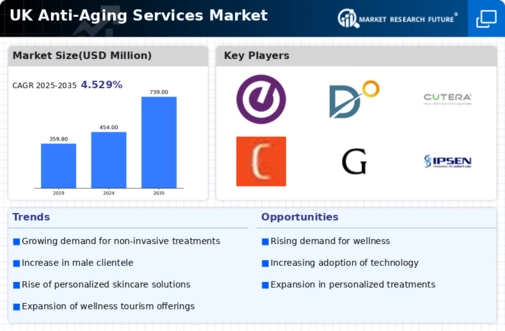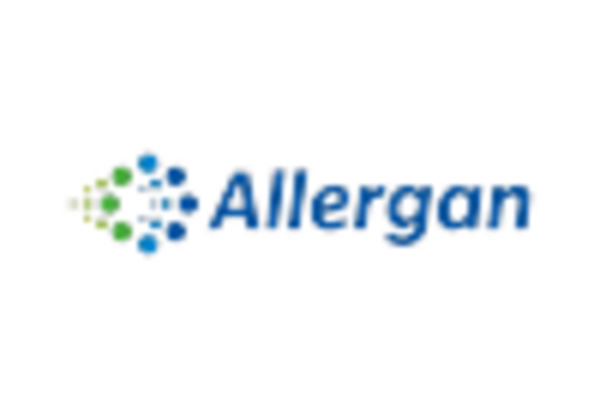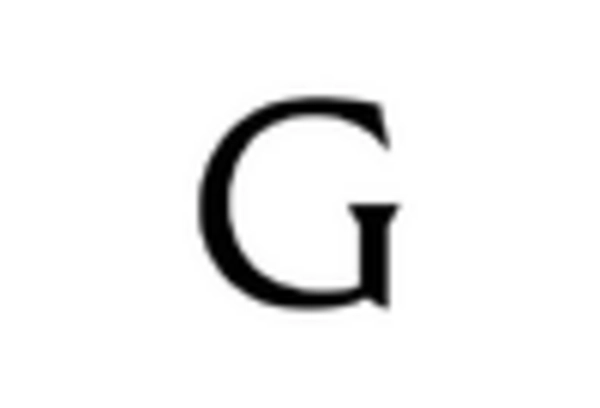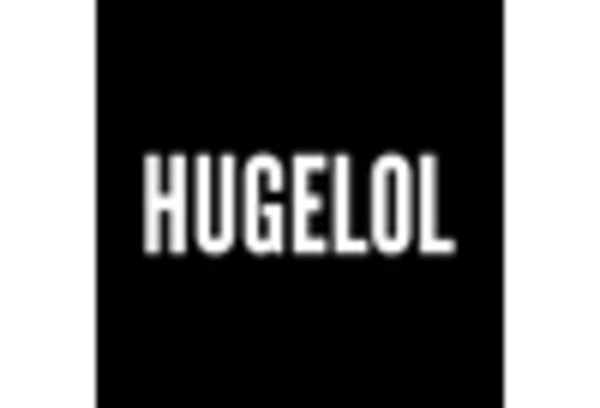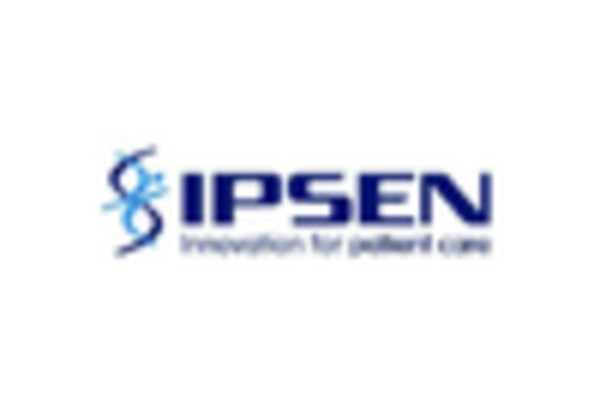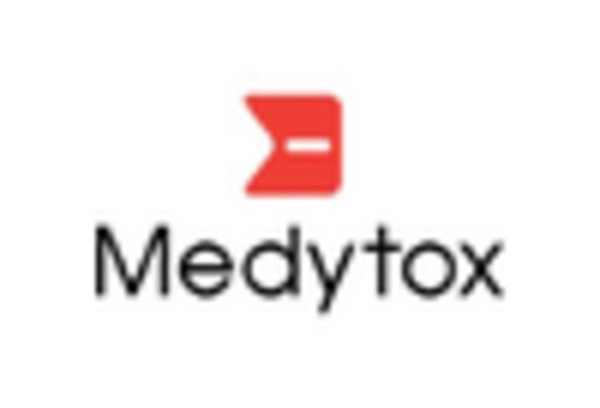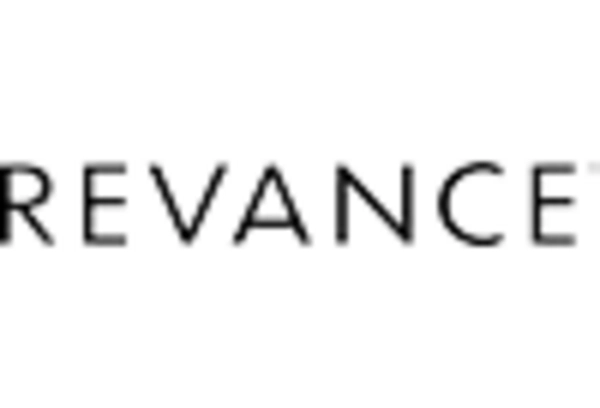Rising Aging Population
The anti aging-services market is experiencing growth due to the increasing aging population in the UK. As life expectancy rises, a larger segment of the population is seeking services that address age-related concerns. According to recent statistics, individuals aged 65 and over are projected to account for 23% of the total population by 2030. This demographic shift is driving demand for various anti aging-services, including skincare treatments, cosmetic procedures, and wellness therapies. The anti aging-services market is thus positioned to benefit from this trend, as older adults are more likely to invest in services that enhance their appearance and overall well-being.
Rising Disposable Income
An increase in disposable income among the UK population is contributing to the growth of the anti aging-services market. As individuals have more financial resources at their disposal, they are more inclined to spend on personal care and aesthetic treatments. This trend is particularly pronounced in urban areas, where higher income levels correlate with greater spending on luxury services. The anti aging-services market is likely to see a boost in demand as consumers prioritize self-care and invest in services that enhance their appearance. Recent data indicates that the average household disposable income in the UK has risen by 3% annually, further supporting this trend.
Growing Focus on Preventative Care
The anti aging-services market is witnessing a shift towards preventative care, as consumers become more proactive about maintaining their youthful appearance. This trend is particularly evident among younger demographics who are increasingly investing in skincare regimens and treatments aimed at delaying the signs of aging. The anti aging-services market is adapting to this demand by offering a range of preventative services, including anti-aging facials, nutritional counseling, and lifestyle coaching. As awareness of the benefits of early intervention grows, the market is expected to expand, with a notable increase in the number of individuals seeking preventative anti aging solutions.
Technological Advancements in Treatments
Technological advancements are playing a crucial role in shaping the anti aging-services market. Innovations in laser technology, skin rejuvenation techniques, and minimally invasive procedures are enhancing the effectiveness and safety of treatments. For instance, the introduction of non-invasive devices has made it easier for practitioners to offer effective solutions with minimal downtime. The anti aging-services market is likely to benefit from these advancements, as consumers increasingly seek out cutting-edge treatments that deliver visible results. Furthermore, the market is projected to grow at a CAGR of 8% over the next five years, driven by these technological innovations.
Increased Awareness of Aesthetic Treatments
There is a growing awareness and acceptance of aesthetic treatments among the UK population, which is positively influencing the anti aging-services market. Media coverage, social media platforms, and celebrity endorsements have contributed to a shift in perceptions regarding cosmetic procedures. As a result, more individuals are considering treatments such as Botox, fillers, and laser therapies. The anti aging-services market is likely to see a surge in demand as consumers become more informed about the options available to them. Recent surveys indicate that approximately 40% of adults in the UK are open to trying non-surgical aesthetic treatments, highlighting a significant opportunity for growth.


